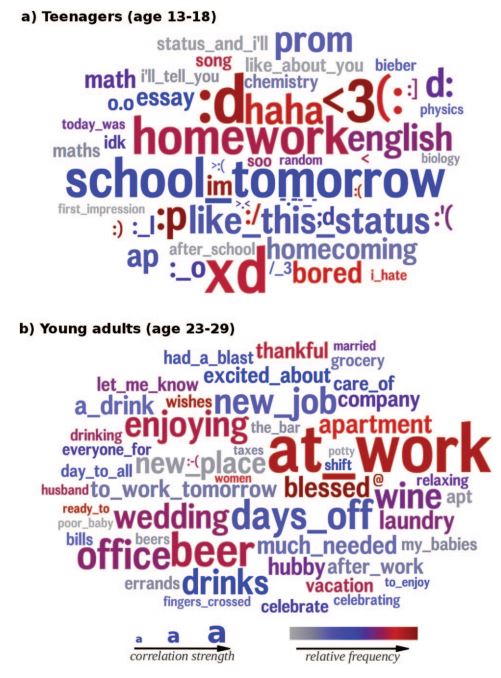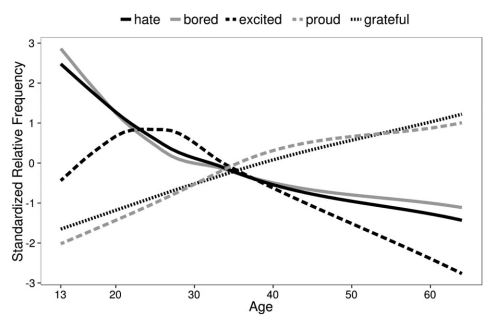- "I now have a tattoo."
- "It's kind of sad that we are wasting valuable time paying a babysitter to buy a new TV."
- "Neat do it yourself Ideas in this link."
- "Stunning sunset off the deck!"
I'm guessing most people don't think more than a few seconds about the snippet of prose they offer their friends. But even if a lot of thought doesn't go into an update, do they, in aggregate, say something about our personalities, our relationships, our lives?
Looking at the status updates above, do you think you could guess the age of each writer? The sex?
Researchers at the University of Pennsylvania and Cambridge University thought status updates might prove useful to social science, a new way to use "big" data. They call their method "differential language analysis."
First, software searches for words (including emoticons and hashtags) and phrases (e.g., "happy birthday," or "like about you"). Researchers then analyze which words and phrases tend to differentiate groups of people--"groups" in this case might be defined in any number of ways: sex, gender, religion, politics, etc.
Researchers also took note of when certain words and phrases tended to cluster together within individuals, forming a category. For example, the words "university," "professor," and "campus" might co-occur, obviously demonstrating some connectedness of experience.
The researchers applied the method to 70,000 Facebook users who had previously consented to have their status updates and some other data anonymously available for research purposes.
The researchers present their results mostly visually (and in fact claim that visualization is critical to help make sense of the many positive correlations obtained) in the familiar word cloud format.
The authors suggest it can be a tool to test hypotheses. They provide the example of the "age positivity effect": older people are generally happier than younger people, even though both young and old view old age negatively (Carstensen & Mikels, 2005). This phenomenon has already been tested via other methods.
The graph below shows word frequency in status updates as a function of age.
References
Carstensen, L. L., & Mikels, J. A. (2005). At the intersection of emotion
and cognition: Aging and the positivity effect. Current Directions in
Psychological Science, 14,117–121.
Kern, M. L. et al (2013) From "Sooo excited!!! to "So proud": Using language to study development. Developmental Psychology. Advance online publication. doi: 10.1037/a0035048



 RSS Feed
RSS Feed